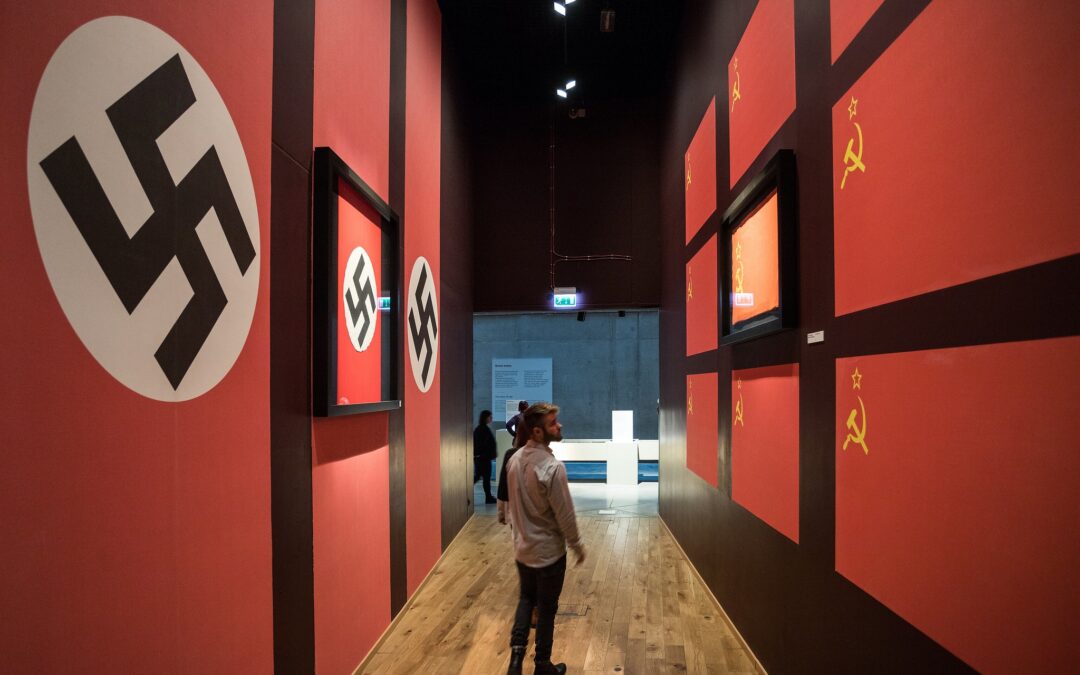Poland’s defence minister has waded into a row over the Museum of the Second World War in Gdańsk by criticising its new management – appointed by his own government – for removing some Polish wartime heroes from its main exhibition.
The museum’s authorities say they are simply restoring the exhibition to its original form, before changes were made to it under the former national-conservative Law and Justice (PiS) government. They accuse their critics of using historical heroes as “hostages”.
Wystawa główna Muzeum II Wojny Światowej w Gdańsku musi być przykładem tego co nas łączy, nie dzieli. Usuwanie z niej tych, którzy dawali świadectwo patriotyzmu i niezłomnej walki o dobro Ojczyzny jest niedopuszczalne. Fragmenty ekspozycji dotyczące rotmistrza Witolda Pileckiego,…
— Władysław Kosiniak-Kamysz (@KosiniakKamysz) June 26, 2024
“Removing those who testified to patriotism and the steadfast fight for the good of the homeland is unacceptable,” tweeted defence minister Władysław Kosiniak-Kamysz this morning. “Fragments of the exhibition concerning Captain Witold Pilecki, Father Maksymilian Kolbe and the Ulma family should be restored immediately.”
Pilecki was a member of the resistance who deliberately had himself imprisoned at Auschwitz in order to gather intelligence and organise resistance in the camp. Kolbe was a priest who gave up his life for another Auschwitz inmate. The Ulmas were a family murdered by the German occupiers for helping Jews.
Kosiniak-Kamysz’s comments came in response to an announcement by the museum’s management yesterday in which they said that parts of the exhibit showing Pilecki, Kolbe and the Ulmas were being removed.
„Wprowadzenie gabloty poświęconej wyłącznie duchownym rzymskokatolickim oraz zawieszenie w centralnych punktach tej przestrzeni portretów o. Kolbego i rtm. Pileckiego zaburzyło antropologiczny charakter narracji” – z oświadczenia Muzeum II WŚ
Obrzydliwe! https://t.co/JttvpxpGYU
— Sławomir Cenckiewicz (@Cenckiewicz) June 26, 2024
Their decision relates to a long-running dispute over the museum, which was opened in 2017. The then-ruling PiS party criticised its exhibition for not sufficiently emphasising the suffering and heroism of Poles during the war. It appointed a new director, Karol Nawrocki, who began making changes to the exhibition.
That prompted criticism from many Polish and international historians, including Norman Davies and Timothy Snyder, who had been involved in creating the original exhibition.
Davies, a renowned international scholar of Polish history, accused PiS of using “Bolshevik” tactics in “a xenophobic attempt to rewrite history”.
Norman Davies pulls no punches here: The govt's desire to re-write Polish history is "Bolshevik" @guardian https://t.co/8s0wqXltOt
— Anne Applebaum (@anneapplebaum) April 24, 2016
In December 2023, the PiS government was removed from power and replaced by a more liberal coalition led by Prime Minister Donald Tusk. In March this year, the culture minister dismissed the PiS-appointed director of the museum, Grzegorz Berendt.
The following month, a new director, Rafał Wnuk, was appointed. He was one of the authors of the original exhibition at the museum. Yesterday, the museum announced that it was now “returning to the original vision of the authors” of the exhibition.
This will involve changes to two sections of the exhibition relating to German-Nazi concentration and death camps. In one part, a display case relating to Roman Catholic clergy imprisoned in the camps as well as portraits of Kolbe and Pilecki – all of which were added by the PiS-appointed management – were removed.
A room at the European Parliament has been named after Witold Pilecki, the Polish underground officer who deliberately had himself imprisoned at Auschwitz during WWII to gather intelligence and organise resistance at the camp https://t.co/bQHkJRDbp3
— Notes from Poland 🇵🇱 (@notesfrompoland) March 16, 2023
In its statement issued yesterday, the museum argued that these additions “in the central points of this space disrupted the anthropological nature of the narrative”, which sought to “deliberately not distinguish” between “professional, national or social categories” of prisoners.
“Similarly, placing a large-format photograph of the Ulma family in the ‘Road to Auschwitz’ section, which talks about the deaths of prisoners in mass extermination camps, broke the artistic composition and narrative coherence of this part of the exhibition,” they added.
The Ulmas were never prisoners in a camp. Instead, they were summarily executed by German gendarmes in their home village of Markowa after it was discovered they had been sheltering Jews in their home.
Over 30,000 pilgrims and Poland’s most senior officials attended a ceremony to mark the beatification – a step on the path to possible sainthood – of a Polish family murdered by the Nazi German occupiers for hiding Jews in their home during the Holocaust https://t.co/QhsQBG51R3
— Notes from Poland 🇵🇱 (@notesfrompoland) September 10, 2023
The museum noted that there would be “further steps” taken to “restore the coherence of the entire exhibition”, though without specifying what they would be.
The actions of the new management were criticised by figures from PiS, which is now the main opposition party. “This is an anti-Polish scandal,” tweeted former education minister Przemysław Czarnek. “Tusk should immediately resign.”
While Kosiniak-Kamysz – who is part of Tusk’s government – also joined the criticism, another leader figure in the ruling coalition, speaker of parliament Szymon Hołownia, today urged calm and called for the issue not to become “another front in the Polish-on-Polish war over history”.
“I have unlimited respect for the sacrifice of the Ulma family, I consider Maksymilian Kolbe a national hero, but historians, not politicians, should decide what should be included in the exhibition,” said Hołownia, quoted by the Rzeczpospolita daily.
To jest skandal antypolski‼️#Tusk do natychmiastowej dymisji‼️#KoalicjaOszustów https://t.co/05UJe7v5gi
— Przemysław Czarnek (@CzarnekP) June 25, 2024

Notes from Poland is run by a small editorial team and published by an independent, non-profit foundation that is funded through donations from our readers. We cannot do what we do without your support.
Main image credit: Mariusz Cieszewski/Polska.pl (under CC BY-NC 2.0)

Daniel Tilles is editor-in-chief of Notes from Poland. He has written on Polish affairs for a wide range of publications, including Foreign Policy, POLITICO Europe, EUobserver and Dziennik Gazeta Prawna.



















